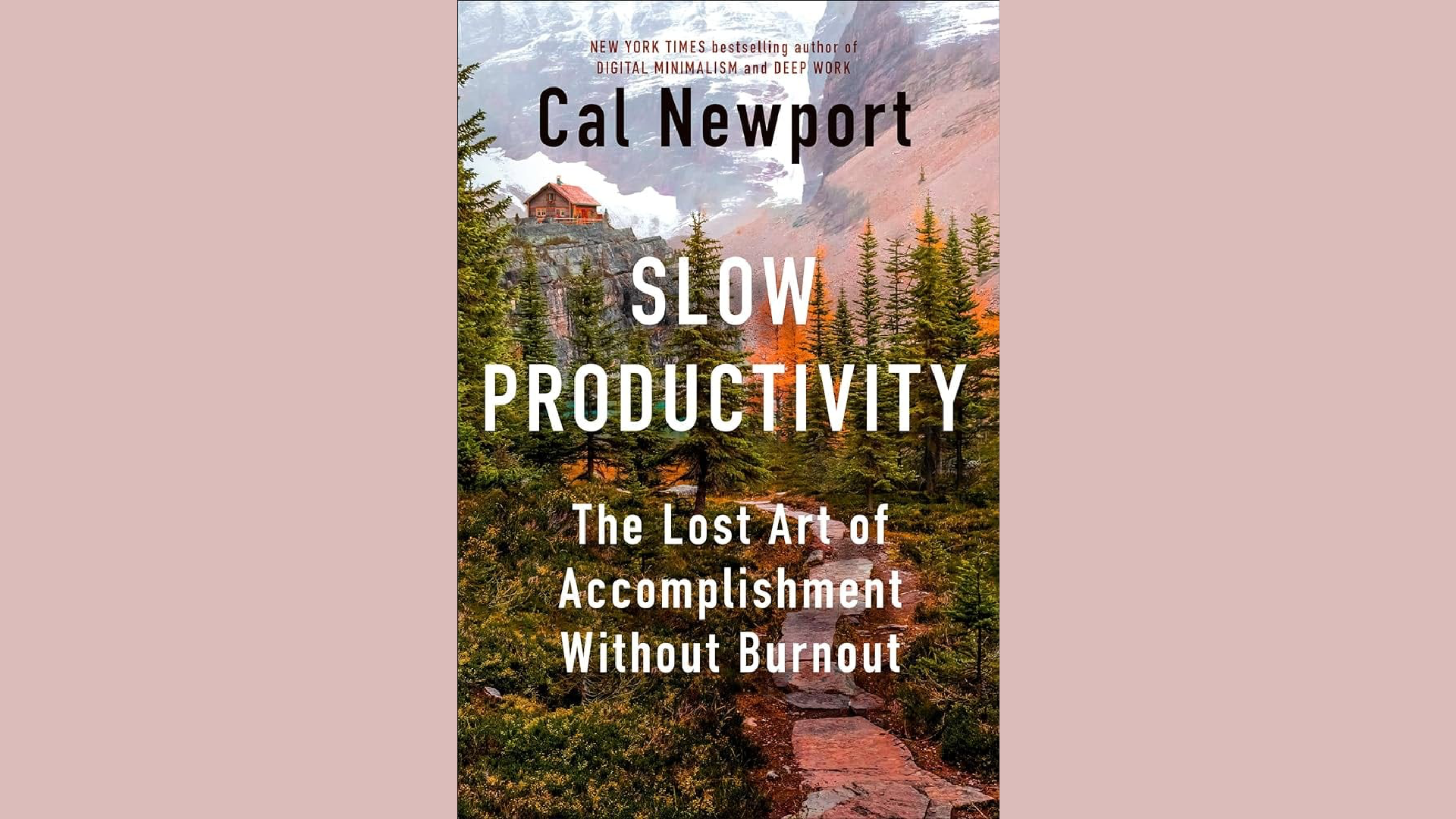Summary: Slow Productivity by Cal Newport

In the whirlwind of entrepreneurship, where speed and multitasking are often seen as virtues, a counterintuitive concept is gaining traction: Slow Productivity. Championed by Cal Newport, this approach proposes a radical shift from the frenetic pace of modern work culture to a more deliberate, quality-focused methodology. Here’s how entrepreneurs can leverage the principles of Slow Productivity to enhance work quality and overall well-being.
Understand Pseudo-Productivity
First, recognize the trap of pseudo-productivity: activities that seem productive but contribute little to meaningful progress. Prioritize tasks that impact your goals and business growth.
Quality Over Quantity
Embrace producing higher quality work, even if it means completing fewer tasks. This focus leads to better outcomes and increases work satisfaction. "You can’t be busy and frenetic and bouncing off the walls with 100 projects if you’re obsessed about doing something really well." This highlights the importance of focus and dedication to quality.
Deep Work Is Non-negotiable
Cultivate periods of deep, focused work without distractions. This practice is a cornerstone of Slow Productivity and can become your competitive edge. "As you get better at something, the more say you get over the way your life unfolds." This underscores the power of mastery in shaping life's trajectory.
Limit Work in Progress
Focusing on a smaller set of tasks at any given time allows for more attention to each task, leading to higher quality output and mitigating burnout risk. "Busyness doesn’t produce high value." A reminder that being constantly busy does not equate to productivity.
Introduce Seasonality to Your Work
Recognize the value of varying work intensity, similar to agricultural seasons. This can prevent burnout and promote long-term sustainability. "They were smart and dedicated and worked hard, but they didn’t hustle... It was a more natural variation." This challenges the notion of hustle culture, advocating for a balanced approach.
Cultivate a Mindset for Slow Productivity
Adopting this approach means valuing downtime and recognizing that high-quality work takes time. This mindset is essential for long-term success. "There’s nothing more quixotic than the overburdened worker trying not to say no... It never works." This stresses setting boundaries and the ability to say no.
Guard Your Time
Defend your time against constant workplace demands and be selective about the projects and tasks you commit to. "There’s nothing more quixotic than the overburdened worker trying not to say no... It never works." This is a powerful message on the importance of saying no and setting clear boundaries.
Reject Hustle Culture
Success doesn't only come from relentless work. Many impactful contributions come from individuals who value their time outside work commitments. "They were smart and dedicated and worked hard, but they didn’t hustle... It was a more natural variation." Newport's reflection on hustle culture reveals the importance of a balanced, quality-oriented approach to work.
Recognize Busyness as a False Indicator
Being perpetually busy is not an indicator of productivity. Focus on activities that truly advance your business and personal goals. "Busyness doesn’t produce high value." Reinforcing the idea that true productivity is not about how busy you are but the value you create.
About Cal Newport
Cal Newport is a distinguished author, speaker, and associate professor of computer science at Georgetown University, where his research focuses on the theory of distributed algorithms. Newport has carved out a niche as a thought leader in the field of work and productivity, offering a fresh perspective on achieving meaningful and satisfying job in an age dominated by distraction.
Overview of Cal Newport's Books
- "Deep Work: Rules for Focused Success in a Distracted World" emphasizes the importance of deep, focused work in achieving success and fulfillment in one's professional life.
- "Digital Minimalism: Choosing a Focused Life in a Noisy World" explores the concept of digital minimalism and advocates for a more intentional use of digital tools.
- "So Good They Can't Ignore You: Why Skills Trump Passion in the Quest for Work You Love" challenges the conventional wisdom that following your passion is good career advice.
- "A World Without Email: Reimagining Work in an Age of Communication Overload" proposes strategies for individuals and organizations to communicate more effectively, addressing the problem of email and messaging overload.
- "Slow Productivity: The Lost Art of Accomplishment Without Burnout" introduces a transformative approach to productivity that emphasizes quality, well-being, and sustainable success.
Incorporating these principles into your entrepreneurial journey means optimizing efficiency, sustainability, and well-being efforts. By embracing Slow Productivity, you can build a business that succeeds and thrives without sacrificing health, relationships, or personal satisfaction.
